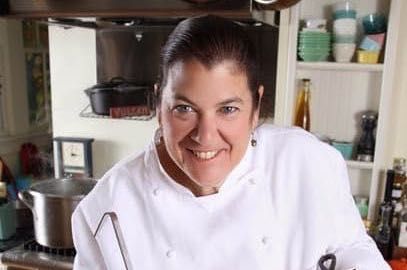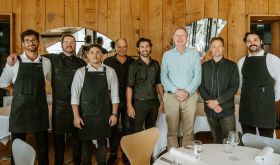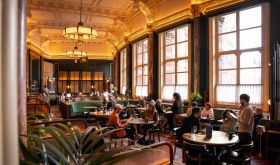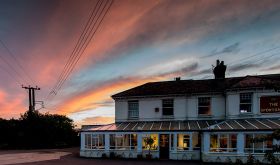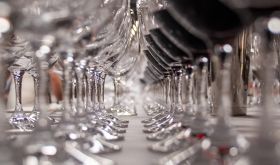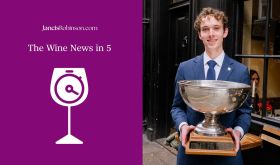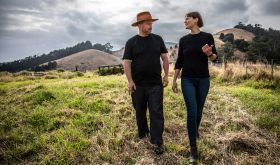Readers could be forgiven for believing that when it comes to choosing restaurants around the world, I lead something of a charmed life.
It must seem as though we turn up at a restaurant, everything goes swimmingly, I leave with enough in the way of impressions plus the memories of the excellent things that we have eaten and drunk and, shortly afterwards, an article appears (it has to be shortly afterwards as I am now 65 and first impressions are always the strongest).
While I don’t believe it is in my best interests to disabuse anyone of this impression, it is not always the case. Recent experiences of three disappointing recent meals testify to this – although overall these were more than made up for by the happy memories from my fourth.
The first two meals were over 3,000 miles apart but they had one obvious feature in common. They both overlooked water, in the case of Furnas do Guincho, the rocky Atlantic coastline just outside Cascais to the west of Lisbon in Portugal, and the second at Fiola Mare, which is located alongside the somewhat tamer waters of the Potomac River in Washington DC. Both restaurants specialise in fish and both suffer from the same fault – their menus are far too long.
The Furnas do Guicho menu lists over 70 items, including five soups, more than a dozen appetisers plus 10 dishes described as ‘specialities’ plus a further 10 meat dishes.
Any kitchen would have trouble coping with such a vast menu but this issue was compounded by two others. The first was that we were there on a warm, sunny Sunday lunchtime when the whole of Lisbon seemed to have descended on this particular restaurant. And, secondly, the management seemed to comprise quite a number of elderly men who had grown up with a habit of never turning a customer away, an approach that just made things more difficult for the kitchen to shine.
On top of that, perhaps, we chose poorly. Perhaps intimidated by the prices listed against the simpler dishes (€85 for a kilo of prawns from the Algarve, turbot at €57 per kilo), after being slightly press-ganged into an introductory plate of prawns, we chose more cheaply: for Jancis a gratinated spider crab (€15) and boiled bread with lobster (€22) while I chose lobster crepes (€19.50) and a seafood curry (€20). All of these arrived looking more or less the same brown colour and only the spider crab was a success. But perhaps we had gone with the wrong attitude and one should just go to Furnas do Guicho, soak in the spectacular views, relax and forget about the price of the fish.
The view from the valet parking outside Fiola Mare was of a limpid moon lighting up the Kennedy Centre. But inside the view was not quite as good because of the American confusion of sophistication with dim lighting – quite a few of the diners were taking advantage of the torches on their iPhones to read the menu. In fact my guest asking one of the many waiters from South America for a second candle for our table revealed another of the restaurant’s weaknesses – instead of a candle he brought a second bowl of olive oil into which to drip our bread!
While here our first courses were good, particularly a dish of bucatini with red prawns, sea urchin and razor clams with XO sauce, it was the main courses and dessert that were disappointing. I ordered the calamari and what came was a full pound of them quickly sautéed but without any colour or distinguishing addition. The Pacherhof Riesling 2015 Alto Adidge at $77 was much more pleasing. The dessert, described as milk, pears and honey for 2–4 to share, and served with a pear sorbet was a huge disappointment, lacking both acidity and lusciousness.
So far we had avoided perhaps the most disturbing feature of many American restaurants, certainly to me anyway, that of an over-talkative waiter. I had to wait only until lunch the following day with New York restaurateur Danny Meyer and Calvin Trillin, the 81 year old described in The Nation as the country's ‘deadline poet’, at Centralino in Washington DC to meet a real-life specimen.
The meal began poorly, albeit generously, with the management bringing us all three a small cocktail that, unfortunately, was composed of limoncello, which, because of its sweetness, would have been better served at the end. Then there was a question to be asked of the kitchen that sends out an extra course of pasta to all three of us after I had ordered pasta as my first course. However kindly conceived, that is one too many pasta courses for even a full-blooded Italian.
But it was the loquaciousness of our waiter that I will not forget. Asked his opinion about a few of his favourite dishes, he rattled through every dish on the entire menu and then kept coming back to our table, interrupting our conversation as it suited him. I wish that I had taped all that he said – it was an object lesson in how not to wait on tables and made me quite overlook the authentic Italian food we otherwise enjoyed.
Finally, to my one good meal in four at Ris, also in Washington DC. This restaurant, which takes its name from its chef/proprietor Doris Lacoste (Ris to anyone who seems to have known her for longer than five minutes), is on a corner site at the bottom of the Ritz Carlton Hotel on L Street.
I wanted to eat here because I had been told of a delicious serving of calves liver and onions that had been enjoyed by a table of women the day before. But imagine my disappointment when I saw the menu and realised that this dish was served only on Thursdays, the day before. Eschewing Friday’s special of beer-battered New Bedford sea scallops, I chose miniature crab cakes and chicken Milanese as well as a glass of Albariño. The extensive menu, to take in so many diverse eating habits, from cheeseburgers to salads, to main courses, to cheese and charcuterie as well as fast lunch boxes, included one dish, a salt cod brandade, that was served far too cold.
But this was in sharp contrast to the warm-hearted and unpretentious approach of Ris Lacoste herself. Ris is a chef who is well known across the city, having run the 1789 restaurant in Georgetown before moving into this location, and today mixes her professional cooking with her more altruistic activities that include a lot of time given to DC Central Kitchen. Founder Robert Egger’s original idea involved picking up wasted food (which people said was unwise), turning this into balanced meals for shelters and non-profit organisations (which people said was unsustainable) and using that process to train jobless adults in the culinary arts (which people said was impossible).
Twenty years on, the strength of DC Central Kitchen and the many others it has spawned across the US has proved the doubters wrong. And as DC itself becomes a city with an increasingly less warm and less friendly disposition, restaurants like Ris will continue to exude warmth, compassion and offer excellent food and wine.
Ris 2275 L Street NW, Washington DC 20037; tel +1 202 730 2500

